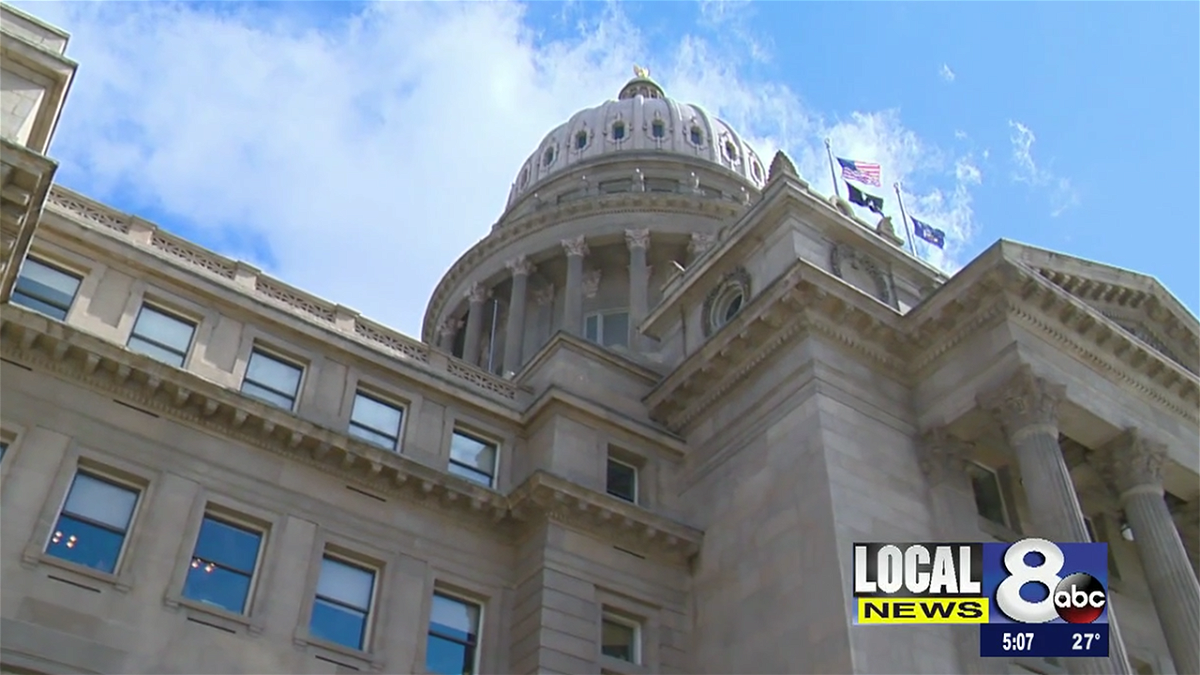Idaho lawmakers tweak bill in power struggle with governor

BOISE, Idaho (AP) - House lawmakers fine-tuned legislation Wednesday in their power struggle with Republican Gov. Brad Little over emergency declarations stemming from the coronavirus pandemic.
The House State Affairs Committee killed one bill and replaced it with a reworded version that seeks to give the Legislature, not the governor, the power to extend emergency declarations that would automatically expire after 30 days.
The new bill contains a significant change - it would limit government entities such as health districts from taking actions that don't follow emergency declaration guidelines set by the Legislature.
Health districts considering or imposing mask mandates during the pandemic have been a major source of friction in many counties, with many residents opposed to mask requirements.
Lawmakers said the pandemic revealed that too much power is concentrated in the governor's office during declared emergencies. Supporters of the legislation bristle at some restrictions put in place by Little that they consider draconian, particularly a temporary stay-at-home order last spring.
"This legislation, I think, is an attempt to try to help define those lines and restore some separation and checks and balances," said Republican Rep. Jason Monks. "Our system of government was set up with checks and balances."
If passed, the bill would automatically end all eight emergency declarations active in the state. So lawmakers put forward another piece of legislation, called a concurrent resolution, that would indefinitely renew six of those declarations, but not the coronavirus emergency. Those declarations stem from severe winter storms and flooding, the longest dating back to 2016.
To take effect, concurrent resolutions need approval in both the House and Senate, but not from the governor.
Little declared the coronavirus emergency on March 13. Later that month, he issued a temporary stay-at-home order as the coronavirus spread rapidly, overwhelming some hospitals and sickening health care workers who said they were running out of personal protective equipment.
The lockdown gave the state and hospitals time to gather supplies. But unemployment shot up from about 3% to nearly 12%. Little lifted most restrictions over the summer as he sought to reopen the economy, and unemployment dropped to about 6%.
But infections and deaths increased in the fall, and Little reinstated some restrictions. There is a limit of 10 people or less during public and private gatherings, though it doesn't apply to religious or political gatherings.
Lawmakers also say they should have had a say in spending decisions for the $1.25 billion in federal coronavirus relief funds that Idaho received last year. Little divvied up the money based on recommendations from his Coronavirus Financial Advisory Committee, which includes a number of lawmakers.
The legislation put forward Wednesday is among nearly a dozen pieces of legislation advancing in both the House and Senate seeking to shift some power from the governor to the Legislature when it comes to emergency declarations. Other states are moving forward with similar actions.
One measure in Idaho seeks a constitutional amendment, which must be approved by voters, that allows lawmakers to call themselves back into session. Now, only the governor can call a special session.
Democratic Rep. John Gannon questioned the constitutionality of some of the legislation, particularly the concurrent resolution.
"All the authority is being transferred to the Legislature, and you're leaving the executive out," Gannon said, noting that executive branch powers are in the Idaho Constitution.






